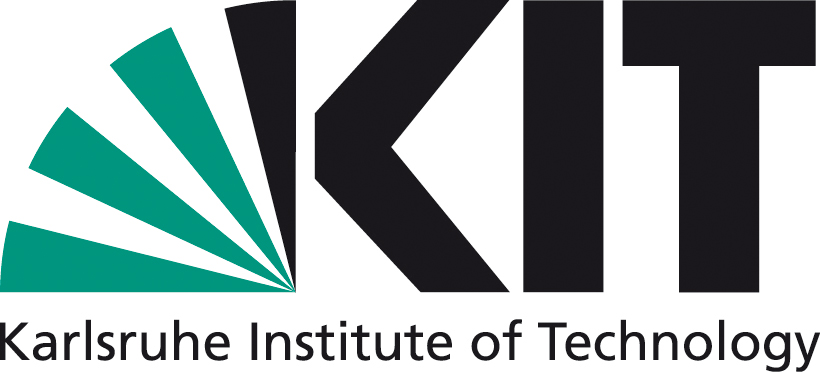The Capability Approach as a normative framework for technology assessment
Capabilities in assessing digitalization in the energy transformation
DOI:
https://doi.org/10.14512/tatup.28.1.52Keywords:
energy transition, digitalization, ethics, autonomous driving, Capability ApproachAbstract
The digital revolution of the energy system promises a new sustainable energy future, but risks security and privacy. How to balance or at least compare these risks against other values like more sustainability is far from obvious and poses severe challenges for the orientation knowledge of technology assessment (TA). This paper explores the Capability Approach (CA) as a normative orientation for TA that allows addressing these challenges. We use two scenarios for the current digitalization in the energy sector as case studies.
References
Balta-Ozkan et al. (2014): Scenarios for the development of smart grids in the UK. Synthesis report. London: UKERC.
Barclay, Linda (2003): What kind of liberal is Martha Nussbaum? In: SATS Northern European Journal of Philosophy 4 (2), pp. 5–24.
BCG – Boston Consulting Group (2015): Self-driving-vehicle features could represent a $ 42 billion market by 2025. Available online at https://www.bcg.com/d/press/8jan2015-self-driving-vehicles-market-2025-832, last accessed on 10. 05. 2017.
Crocker, David (2008): Ethics of global development. Agency, capability, and deliberative democracy. Cambridge: Cambridge University Press. DOI: https://doi.org/10.1017/CBO9780511492594
Droste-Franke, Bert et al. (eds.) (2015): Improving energy decisions. Towards better scientific policy advice for a safe and secure future energy system. Cham: Springer.
Fleischer, Torsten; Schippl, Jens (2018): Automatisiertes Fahren. Fluch oder Segen für nachhaltige Mobilität? In: TATuP – Zeitschrift für Technikfolgenabschätzung in Theorie und Praxis 27 (2), pp. 11–15. DOI: https://doi.org/10.14512/tatup.27.2.11
Givoni, Moshe; Fleischer, Torsten; Schippl, Jens (2018): Interview with Prof. Moshe Givoni. Self-driving cars are completely the wrong tool for me!. In: TATuP – Zeitschrift für Technikfolgenabschätzung in Theorie und Praxis 27 (2), pp. 68–71. DOI: https://doi.org/10.14512/tatup.27.2.68
Hillerbrand, Rafaela (2018): Why affordable clean energy is not enough. A capability perspective on the sustainable development goals. In: Sustainability 10 (7), p. 2485. DOI: https://doi.org/10.3390/su10072485
Hillerbrand, Rafaela; Goldammer, Kathrin (2018): Energy technologies and human well-being. Using sustainable design for the energy transition. In: Albrecht Fritzsche and Sascha Oks (eds.): The future of engineering. Cham: Springer, pp. 151–175. DOI: https://doi.org/10.1007/978-3-319-91029-1_11
IEA – International Energy Agency (2011): Technology roadmap smart grids. Available online at https://webstore.iea.org/technology-roadmap-smart-grids, last accessed on 16. 10. 2018.
IEA (2015): How 2 guide for smart grids in distribution networks roadmap development and implementation. Available online at https://webstore.iea.org/how2guide-for-smart-grids-in-distribution-networks, last accessed on 16. 10. 2018.
Leon, Dorian (2017): Capability approach. A formal introduction. In: Journal of Economics and Political Economy 4 (2), pp. 216–18.
Milchram, Christine; van de Kaa, Geerten; Doorn, Neelke; Künneke, Rolf (2018a): Moral values as factors for social acceptance of smart grid technologies. In: Sustainability 10 (8), p. 2703. DOI: https://doi.org/10.3390/su10082703
Milchram, Christine; Hillerbrand, Rafaela; van de Kaa, Geerten; Doorn, Neelke; Künneke, Rolf (2018b): Energy justice and smart grid systems. Evidence from the Netherlands and the United Kingdom. In: Applied Energy 229, pp. 1244–1259. DOI: https://doi.org/10.1016/j.apenergy.2018.08.053
Muench, Stefan; Thuss, Sebastian; Guenther, Edeltraut (2014): What hampers energy system transformations? The case of smart grids. In: Energy Policy 73, pp. 80–92. DOI: https://doi.org/10.1016/j.enpol.2014.05.051
Nussbaum, Martha Craven (2006): Frontiers of justice. Disability, nationality, species membership. Cambridge, MA: Belknap Press. DOI: https://doi.org/10.2307/j.ctv1c7zftw
Rat für Nachhaltige Entwicklung (2018): Nachhaltig und digital. Nachhaltige Entwicklung als Rahmen des digitalen Wandels. Empfehlung des Rates für Nachhaltige Entwicklung an die Bundesregierung. Available online at https://www.nachhaltigkeitsrat.de/wp-content/uploads/2019/01/20181219_RNE_Empfehlung_Digitalisierung.pdf, last accessed on 07. 02. 2019.
Robeyns, Ingrid (2016): Capabilitarianism. In: Journal of Human Development and Capabilities 17 (3), pp. 397–414. DOI: https://doi.org/10.1080/19452829.2016.1145631
Schippl, Jens; Fleischer, Torsten; Truffer, Bernhard (2018): Exploring potential impacts of societal dynamics on the development of autonomous cars. Paper presented at the 7th Transport Research Arena TRA 2018. Vienna, Austria, 16.–19. 04. 2018.
Sen, Amartya (1992): Inequality reexamined. Oxford: Clarendon Press.
Sen, Amartya (2004): Capabilities, lists and public reason. In: Feminist Economics 10 (3), pp. 77–80. DOI: https://doi.org/10.1080/1354570042000315163
Skinner, Rachel; Bidwell, Nigel (2016): Making better places. Autonomous vehicles and future opportunities. N. p.: WSP, Parsons Brinckerhoff in association with Farrells.
Truffer, Bernhard; Schippl, Jens; Fleischer, Torsten (2017): Decentering technology in technology assessment. Prospects for socio-technical transitions in electric mobility in Germany. In: Technological Forecasting and Social Change 122, pp. 34–48. DOI: https://doi.org/10.1016/j.techfore.2017.04.020
Published
How to Cite
Issue
Section
License
Copyright (c) 2019 Rafaela Hillerbrand, Christine Milchram, Jens Schippl

This work is licensed under a Creative Commons Attribution 4.0 International License.








